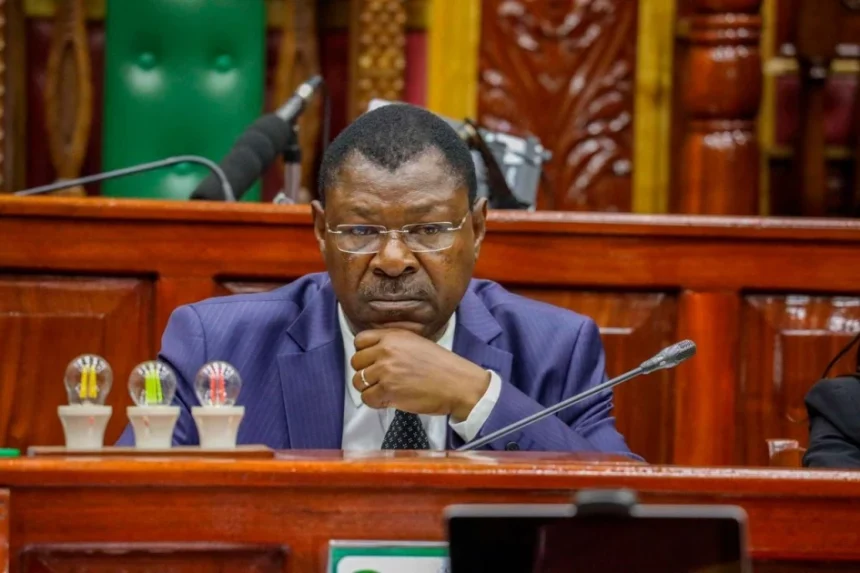Petitioners challenging the nomination process of Independent Electoral and Boundaries Commission (IEBC) commissioners have told the Milimani Law Court that the respondents are in contempt of court for gazetting the commissioners despite existing court orders.
Led by lawyer Paul Muite, the petitioners on Monday argued that the National Assembly, under the leadership of Speaker Moses Wetang’ula, defied orders from both the High Court and the Court of Appeal.
“It is our submission that the National Assembly—whose Speaker is Moses Wetang’ula, who happens to be my personal friend—has acted in contempt,” Muite told the court. “This court has already found that he cannot serve as both the Speaker and the Chairman of Ford-Kenya.”
He emphasized the Speaker’s central role in the legislative process, asserting that Wetang’ula’s defiance directly undermines the authority of the judiciary.
On the urgency raised by the respondents that a commission must be in place ahead of the 2027 elections, Muite remarked, “I agree elections are important, but let us look at the bigger evil.”
He further challenged the legality of the Memorandum of Understanding (MoU) signed between the ruling party and the opposition, which he argued formed the basis of the current nomination process. According to Muite, the MoU violates Article 3(2) of the Constitution.
“Sub-article one provides that every person must uphold and respect this Constitution,” he said. “Sub-article two states that any attempt to establish a government contrary to what is provided for in the Constitution is unlawful and unconstitutional.”
In response, the court acknowledged the gravity of the issues raised but stated it was not ready to issue a ruling at this stage.
“We do appreciate these are important issues, but we are not making a determination now,” the judge said, adding that a ruling will be delivered in due course.
President William Ruto appointed a new electoral body chaired by Erastus Ethekon in a Kenya Gazette notice published on June 10.
This was despite conservatory orders issued by the High Court on May 19 blocking vetting and approval of the IEBC appointees by the National Assembly, pending the determination of a petition filed by two individuals.
The petitioners contend that the process of choosing the IEBC commissioners was unlawful and that some of the nominees do not meet the eligibility threshold for appointing Kenya’s electoral commissioners.
But the National Assembly, in concert with the executive, told the court that halting the process would disrupt a constitutionally time-bound exercise and undermine public participation.



